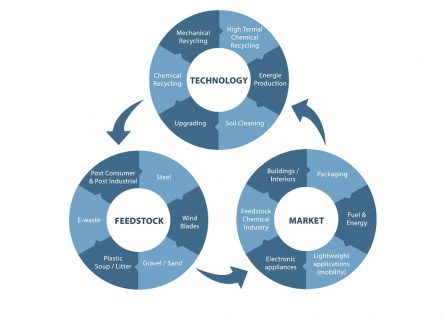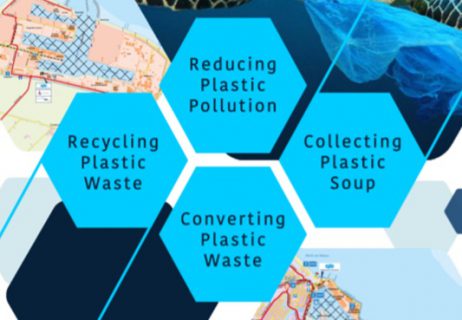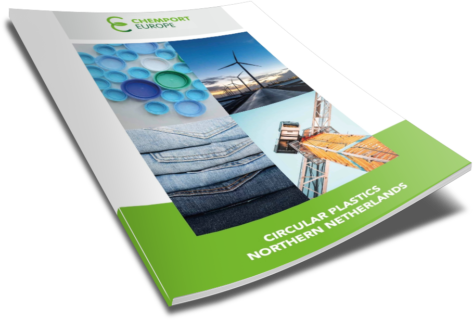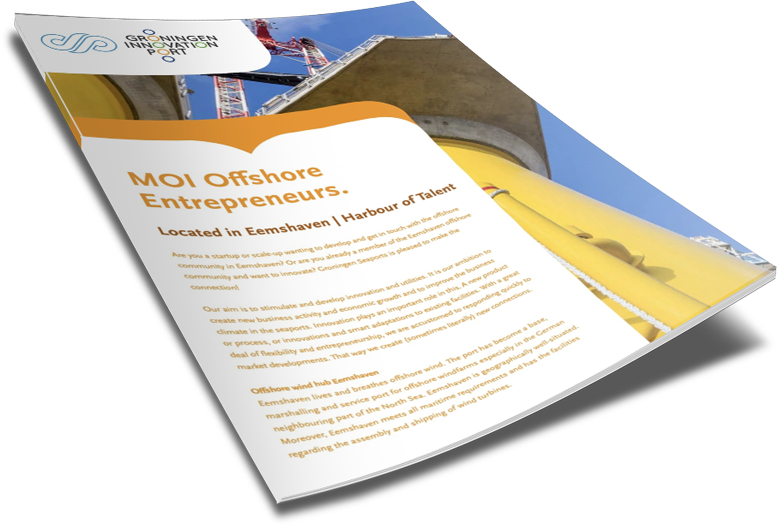Groningen Seaports.
Tomorrow’s circular hotspot.
Circular hotspot
The Northern Netherlands is the best place in Europe to test and optimize your circular business model and supply chain, to test the market for circular products at an industrial scale before going to full production, and to plug in at the existing large-scale ecosystem.
Groningen Seaports has the feedstock. With a wide variety of businesses in Delfzijl and Eemshaven Groningen Seaports has feedstock streams available which suit different companies:
- Plastic waste
- E-waste
- Decommissioned wind blades
- Building materials
Benefits of the Northern Netherlands:
- Partners available along the circular value chain
- A shared focus between stakeholders
- European funding
- Regional governmental support
- Cooperation with nearby knowledge institutes
- Large start- and scale-up network
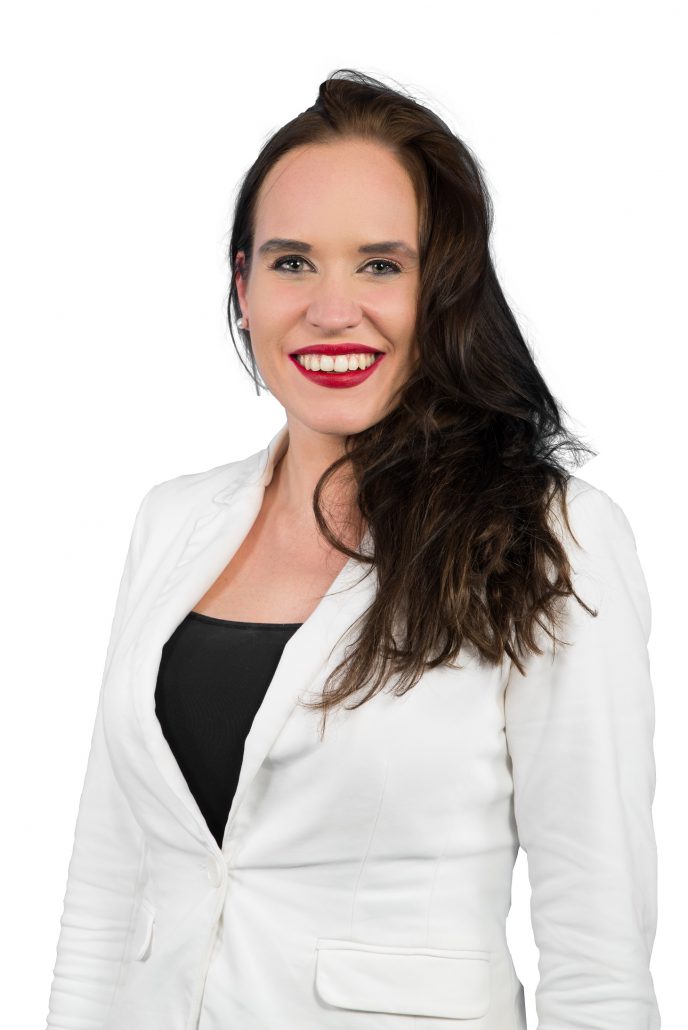
HELEEN VAN WIJK
E-mail address: h.vanwijk@groningen-seaports.com
Phone number: +31 (0)6 3165 1986
DOWNLOAD BROCHURE
Plastic waste
We have an ecosystem that creates the perfect launching path for the recycling of plastics, with existing companies in our port and the space to develop a wider value chain. Through strong partnerships with knowledge institutes we have set up programs to create awareness amongst citizens to use less plastic. The best value chain offers close-by demand. With our local chemical companies we have an economically viable system that creates smart opportunities for your converted waste stream as a feedstock. Additionally, our chemical cluster is focused on producing bio packaging materials. Furthermore, companies that recycle waste streams into products are facilitated through public-private programs with our port as the logical center point. Furniture or toys, all sorts of products could be produced making sure we close loops around plastics and waste. The plastic waste consists of the following:
- Plastic soup
Groningen Seaports is working together with European partners to fight the plastic soup. As a port we have a shared responsibility for clean oceans. Our ecosystem facilitates start-ups specialized in collecting plastics which need to be recycled. - Shipping waste
Groningen Seaports has a big ship waste management company in the harbor, Bek & Verburg. This company has over one hundred separated waste streams, which are ready to be recycled. - Post-consumer waste
EEW has recently invested in an expansion of their incineration plant in our port of Delfzijl. EEW uses municipality waste and they deliver to industries close-by. They are always looking for partnerships that help making their process and the industry run more efficient.
The value chain:
- EEW Energy from Waste
- Bek & Verburg
- Nature Group
- Bollegraaf Recycling
- Subcoal International
- Avantium
- BioBTX
- JPB Groep
- Virol
E-waste
Over the last couple of years the datacenter industry has invested over 1,5 billion euro’s in their facilities in the port of Eemshaven, which will uniquely generate a steady flow of e-waste that needs to be recycled. In addition to the massive data sector in our port, the surrounding ecosystem of governmental institutes, companies and schools will generate sustainable e-waste as well. The management and recycling of e-waste in a sustainable and green way has become an important focal point over the last years due to the ongoing increase of devices and the scarcity of usable materials.
Groningen Seaports is able to connect e-waste recyclers with different local players, like Google and QTS. Although common waste and e-waste have different policy drivers and markets, both recycling systems have a natural fit within our ports.
Facts and figures:
- Close by Tech City Groningen
- The datacenter cluster continues to grow rapidly
The value chain:
- QTS
- ENGIE
- TenneT
- Enexis
- Local primary schools
Decommissioned wind turbine blades
Eemshaven has become one of the leading offshore wind ports around the North Sea. Already 17 windfarms at the North Sea are being realized via port of Eemshaven as the logistic base hub during construction and the installation of the eighteenth wind farm (Kaskasi) will start soon. Besides that Eemshaven is service base (O&M) for 4 wind farms (316 turbines). Furthermore, Eemshaven houses the largest onshore wind farm in the Netherlands. The next years the number of wind farms at the North Sea will increase enormously. In particular with the recently announced NortH2 project where Groningen Seaports together with Shell and Gasunie aim to build an extra 10GW of installed offshore wind capacity.
Groningen Seaports sees great opportunities around decommissioning programs starting in the next few years. The decommissioning is in large part triggered by the repowering of current on- and offshore wind turbines. The experienced supply chain in Eemshaven will be a center point for the transportation of these new turbines and the old parts. We’re active in the automotive sector as well, which is a possible market opportunity for companies that can recycle the composites from the wind blades into fibers.
Facts and figures:
Logistics
- 18 projects
- 1,223 turbines
- 7.2 GW (of which 2.2 GW turbines and 5.0 GW foundations)
Maintenance (O&M)
- 6 wind farms
- 2.5 GW
- 474 turbines
The value chain:
- Siemens Gamesa
- Vestas
- Enercon
- Innogy
- Enerpy
- Buss Terminal Eemshaven
- Virol
Building materials
In Delfzijl and Eemshaven the complete value chain for primary and secondary building materials is present. Different companies specialized in products and services for the soil, road, water and concrete construction industry have been established here. For example, Theo Pouw Groep produces sustainable concrete which consists of at least 30% recycled concrete granulate.
Furthermore Groningen Seaports is partner in ‘ED2050’. The objective of this program is to improve the ecological situation of the Eems Dollard, for example by extracting mud from the estuary and convert it into building blocks. Groningen Seaports works on this project together with the Dutch Ministry of Infrastructure and Water Management, the province of Groningen, Water Board Hunze en Aa’s, Het Groninger Landschap and Ecoshape.
The value chain:
- Theo Pouw Groep
- BuildinG Groningen
- Gebroeders Borg
- Heuvelman GSO
- Ministry of Infrastructure and Water Management
- Roba Metals
- Arcadis
- Boskalis
- Van Oord
- Deltares
- Ecoshape
- Reym
- IHC
- HKV Lijn in Water
- Royal Haskoning DHV
- Witteveen+Bos

